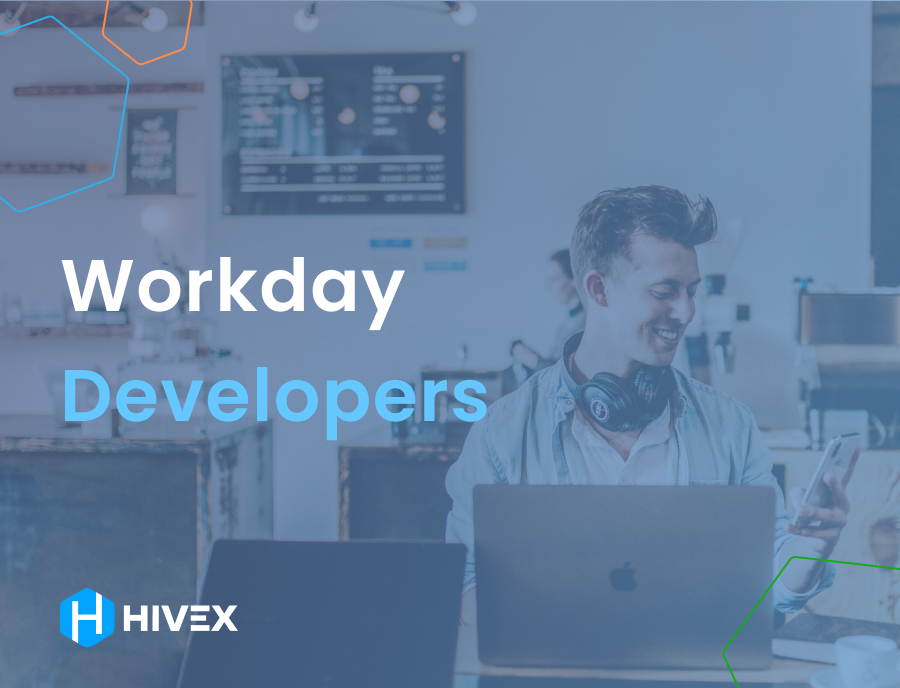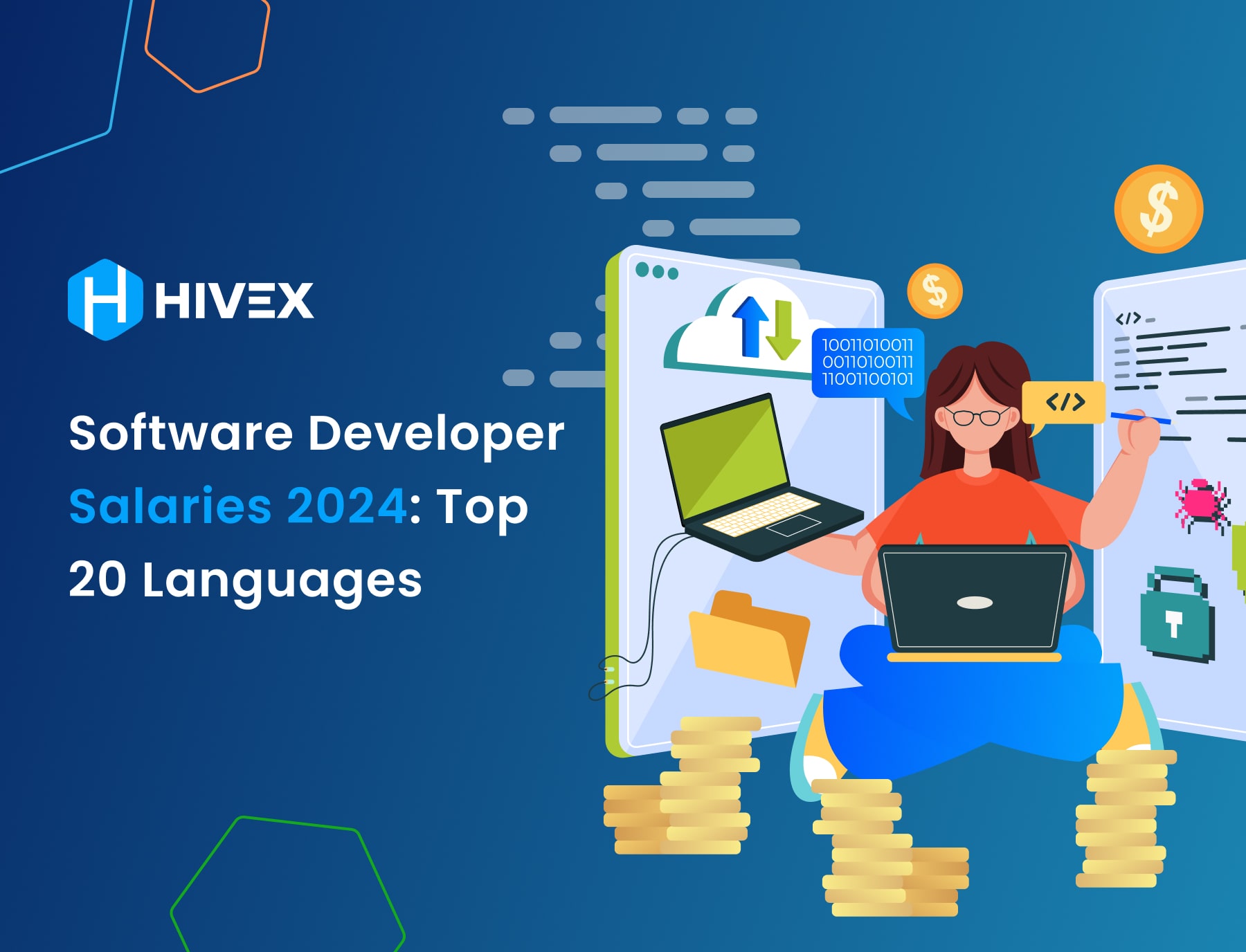How to Hire AI Developers: From Sourcing to Onboarding
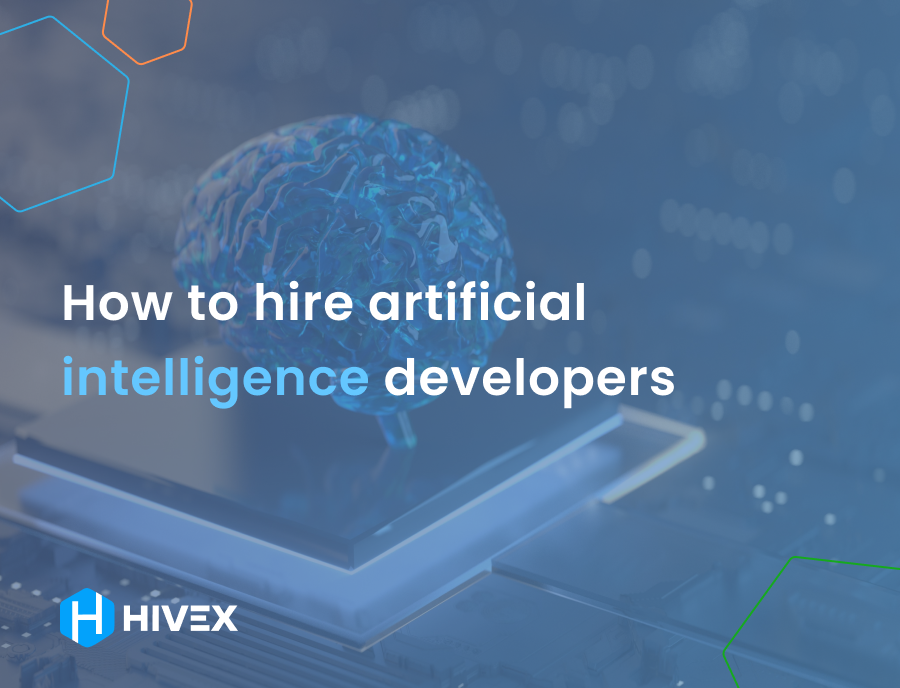
The demand for AI professionals is expected to grow by 35% in the next few years, much faster than the 5% average growth for all other jobs. To stay competitive, businesses must hire AI developers effectively.
How can your business keep up?
From sourcing top talent to onboarding, we’ll guide you through every step. Discover the best hiring tips and build your dream team.
Table of Contents
The Role of AI Developers
To start with, it’s important to have a clear understanding of the roles and responsibilities of AI developers. They are responsible for developing and implementing AI models, algorithms, and systems to solve complex problems. Their work encompasses machine learning, natural language processing, computer vision, and other AI technologies.
AI engineers play a crucial role in the advancement of artificial intelligence. They are at the forefront of developing cutting-edge technologies that have the potential to revolutionize various industries. Their work involves designing and building intelligent systems that can learn from data, make predictions, and automate tasks.
One of the key responsibilities of AI engineers is designing and developing AI models and algorithms. This involves understanding the problem at hand, selecting appropriate machine-learning techniques, and creating models that can effectively learn from data. They need to have a deep understanding of various algorithms and their strengths and weaknesses.
Building and fine-tuning machine learning systems is another important aspect of an AI developer’s role. This involves training models on large datasets, adjusting hyperparameters, and optimizing the performance of the system. They need to have a strong grasp of statistical concepts and techniques to ensure that the models are accurate and reliable.
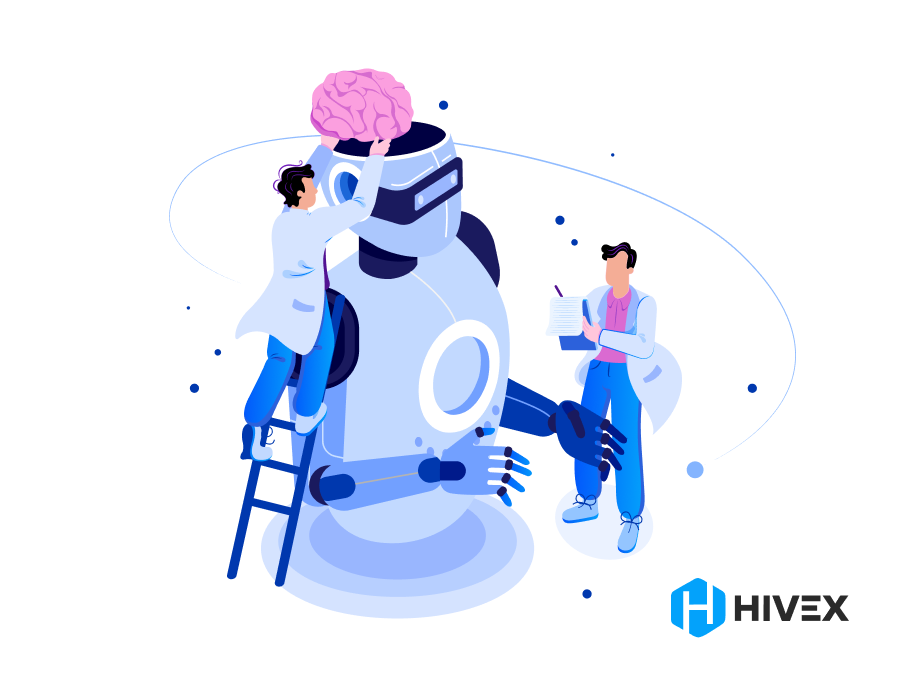
Processing and analyzing large datasets is a crucial part of an AI developer’s job. They need to be proficient in data handling and preprocessing techniques to extract meaningful insights from raw data. This involves cleaning the data, handling missing values, and transforming the data into a suitable format for training models.
Optimizing AI solutions for performance and scalability is also a key responsibility of AI developers. They need to ensure that the systems they build can handle large amounts of data and deliver results promptly. This requires knowledge of efficient algorithms, parallel computing, and distributed systems.
Collaboration is an essential skill for artificial intelligence engineers as they often work in cross-functional teams. They need to be able to communicate effectively with domain experts, data scientists, and software engineers to integrate AI capabilities into existing systems. Strong communication and collaboration skills are crucial for successful project execution.
Key Responsibilities of AI Developers
AI developers are responsible for:
- Designing and developing AI models and algorithms
- Building and fine-tuning machine learning systems
- Processing and analyzing large datasets
- Optimizing AI solutions for performance and scalability
- Collaborating with cross-functional teams to integrate AI capabilities
Essential Skills for AI Developers
When you hire AI engineers, it’s crucial to assess their skills in the following areas:
- Strong programming skills, especially in Python and R
- Experience with machine learning frameworks, such as TensorFlow or PyTorch
- Proficiency in data handling and data preprocessing
- Understanding of statistics and probability
- Good problem-solving and critical thinking abilities
- Strong communication and collaboration skills
Overall, AI developers play a vital role in the development and implementation of artificial intelligence solutions. Their expertise in machine learning, data analysis, and software development enables them to create intelligent systems that can make accurate predictions and automate complex tasks. With the demand for AI technologies on the rise, the role of AI software developers will continue to be crucial in shaping the future of various industries.
The Hiring Process for AI Developers
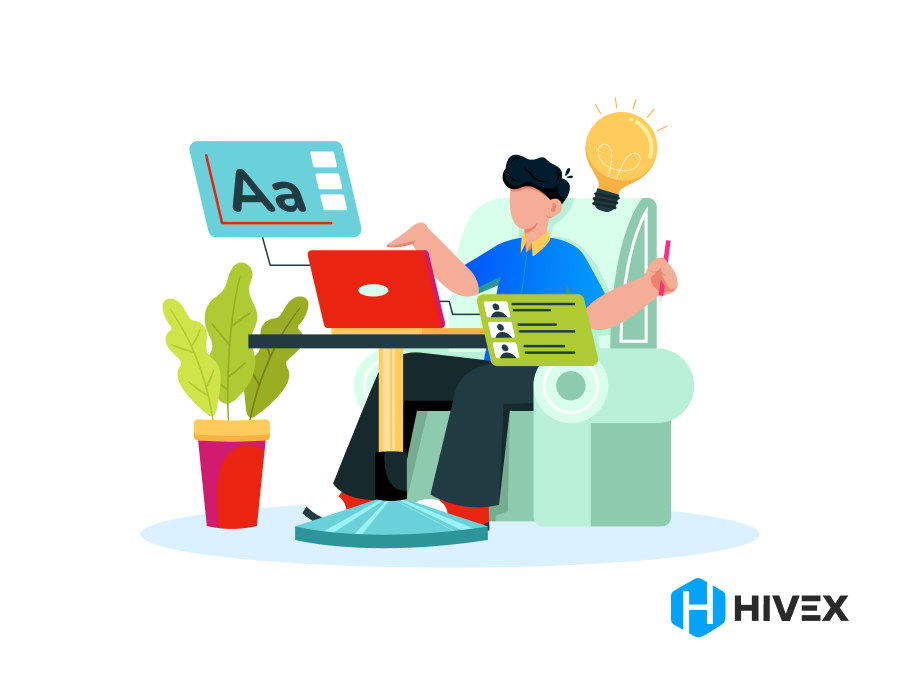
Now that you have a clear understanding of the role and skills required, let’s dive into the hiring process for remote AI engineers. Hiring the right experts is crucial to the success of your AI initiatives. Let’s explore the various steps involved in the hiring process.
1. Identify Your AI Development Needs
Before you start the hiring process, it is important to identify your organization’s specific AI development needs.
This involves a careful assessment of your current projects and initiatives, determining where artificial intelligence can add value, and defining the desired outcomes. With a clear understanding of your needs, you’ll attract candidates aligned with your business goals.
2. Where to Hire AI Engineers
Once you have identified your AI needs, the next step is to find qualified developers. There are several avenues you can explore to find talented individuals with expertise in artificial intelligence:
- Online job boards and professional networking platforms, such as LinkedIn, can be great sources for finding qualified engineers. These platforms allow you to post AI job descriptions and connect with professionals with the skills and experience you are looking for.
- AI developers’ communities and forums are another valuable resource for finding qualified candidates. These communities provide a platform for AI enthusiasts to connect, share knowledge, and collaborate on projects. Engaging in these communities can help you identify individuals who are passionate about artificial intelligence and have the necessary skills.
- University AI research labs and departments are often home to talented AI developers. Collaborating with universities and research institutions can give you access to a pool of promising candidates who are at the forefront of AI research and development.
- Partnering with AI-focused recruitment agencies can also be an effective way to find qualified AI engineers. These agencies specialize in identifying and connecting organizations with top IT talent, saving you time and effort in the hiring process.
3. Interview Potential AI Developers
Once you have identified potential candidates, the next step is to conduct interviews to assess their suitability for the role. When conducting interviews, it is important to focus on assessing both technical skills and cultural fit.
Evaluating AI Developer Candidates
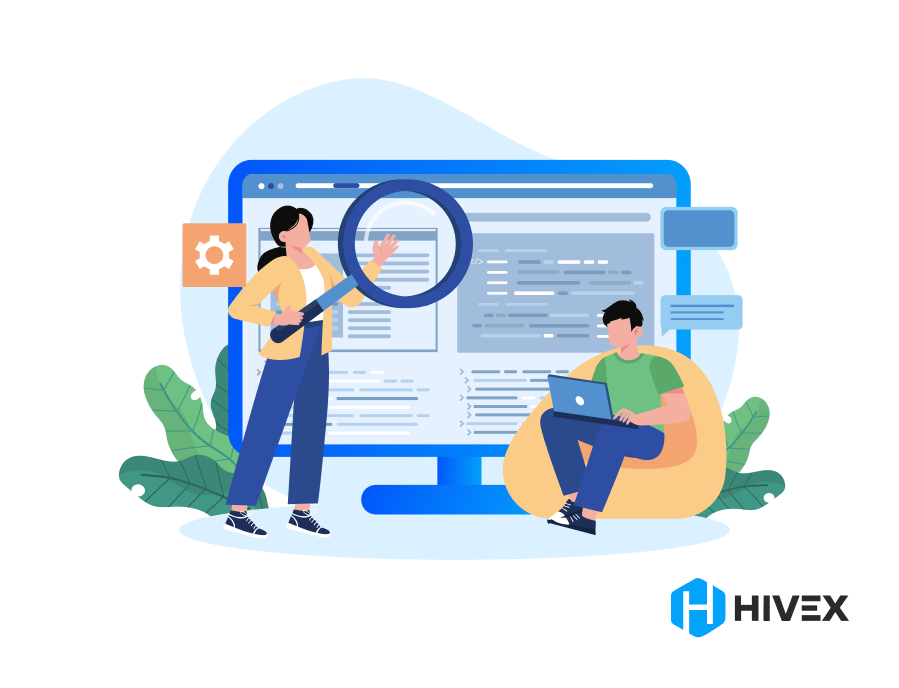
Once you have conducted interviews and evaluated the candidates, it’s time to make a decision.
Assess Technical Skills
Technical skills are a critical aspect of AI development, making them a primary focus during the interview process. Candidates should be evaluated on their ability to solve coding problems, analyze algorithms, and explain their approach to machine learning challenges. Look for evidence of their capability to apply theoretical concepts to practical situations and their familiarity with relevant tools and frameworks.
Key areas to assess include:
- Proficiency in Programming Languages: ensure candidates are skilled in programming languages commonly used in AI development, such as Python, Java, or C++. Strong understanding of data structures and statistical analysis is essential for success in this field.
- Experience with Machine Learning Frameworks: evaluate their experience with industry-standard tools like TensorFlow and PyTorch. Proficiency in these frameworks indicates familiarity with the practical aspects of machine learning.
- Understanding of Algorithms and Techniques: candidates should demonstrate knowledge of machine learning algorithms, including linear regression, decision trees, and neural networks. Their ability to apply these algorithms to real-world problems and optimize their performance is crucial.
By thoroughly reviewing these technical skills, you can ensure that AI developer candidates possess the necessary expertise to contribute effectively to your projects.
Evaluate Problem-Solving Abilities
Problem-solving is a key skill for artificial intelligence engineers, making it essential to evaluate candidates’ abilities in this area. Present candidates with real-world AI problems to assess their creative thinking, analytical skills, and ability to break down complex issues into manageable steps.
For instance, you might ask a candidate to optimize an existing algorithm for better performance or develop a machine-learning model to predict customer behavior based on historical data.
AI experts need to think critically and develop innovative solutions to challenges encountered during the development process. Consider their approach to complex AI problems, their systematic problem-solving methods, and their potential for continuous learning and growth.
For example, a candidate might be asked to troubleshoot a malfunctioning neural network, requiring them to identify the issue and implement a fix efficiently. This is a common task for an AI engineer in the software industry, where practical problem-solving is crucial.
To thoroughly assess problem-solving skills, use technical assessments or discuss previous projects candidates have worked on. Look for those who demonstrate a systematic approach, breaking down large problems into smaller, manageable tasks.
To illustrate, when faced with the challenge of building a recommendation system, an effective candidate might outline steps such as data preprocessing, model selection, training, and evaluation.
Critical thinking and creativity in finding solutions are also important. Candidates who can think outside the box and propose novel solutions to common AI challenges, like reducing bias in training data or improving the interpretability of complex models, are particularly valuable in software development.
Check Cultural Fit and Communication Skills
When evaluating AI engineers, it’s crucial to assess whether they align with your organization’s culture and values. Look for individuals who can effectively communicate and collaborate with your existing teams.
Cultural fit is essential, as it influences the candidate’s ability to integrate well and work harmoniously within your organization.
To gauge cultural fit, consider the candidate’s values, work ethic, and communication style during interviews.
Assess their compatibility with your team and their ability to thrive in your work environment.
Ask questions that reveal how they handle teamwork, their approach to challenges, and how they align with your company’s mission and values.
Effective communication and collaboration skills are equally important. AI developers must be able to articulate their ideas clearly, listen actively to others, and work well in a team setting.
Their ability to explain complex AI concepts in simple terms is particularly valuable, as it facilitates effective collaboration with non-technical stakeholders.
Evaluate their ability to adapt their communication style to different audiences, ensuring they can convey technical information to both technical and non-technical team members.
Additionally, strong communication skills are essential for AI engineers to present their work to stakeholders clearly and concisely. This ensures everyone involved understands the project’s progress and goals, which is crucial for successful project outcomes.
When assessing candidates, consider their potential for continuous learning and growth, as well as their technical skills. Look for individuals who demonstrate a systematic approach to problem-solving, creative thinking, and commitment to learning.
Onboarding Your New AI Engineer
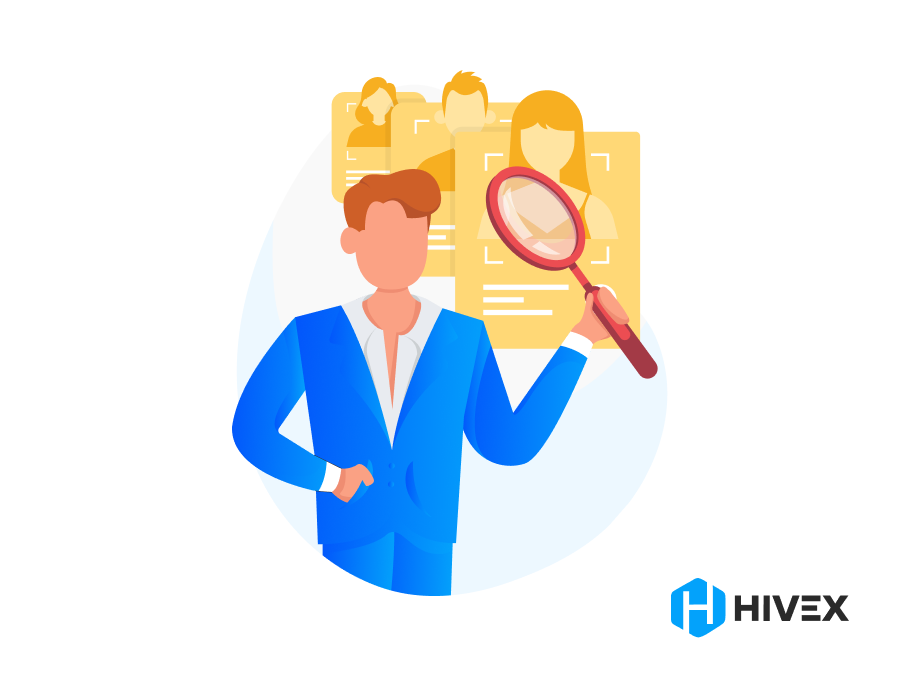
Congratulations! You have found your perfect AI developer. Now it’s time to onboard them seamlessly into your organization.
Bringing a new AI developer into your organization is an exciting opportunity to enhance your business’s capabilities and competitiveness. By understanding the role, identifying your needs, and following a systematic hiring process, you have found the right talent that aligns with your organization’s goals. Now, let’s dive into the onboarding process to ensure a smooth transition and maximize the potential of your new AI developer.
Setting Expectations and Goals
Communicating your expectations and goals to your new AI developer is essential for a successful onboarding process. Take the time to sit down with them and discuss the specific outcomes you expect from their work. Set clear milestones and benchmarks to track their progress and provide them with the necessary resources and support to achieve success.
During this initial phase, it is crucial to establish a strong foundation of trust and understanding. Encourage open communication and make sure your AI developer feels comfortable asking questions and seeking clarification. By setting clear expectations and goals, you are laying the groundwork for a productive and collaborative working relationship.
Integrating into the Existing Team
Integrating your new AI developer into your existing teams is a critical step in their onboarding process. Encourage cross-functional collaboration and provide opportunities for knowledge sharing and growth. Consider organizing team-building activities or assigning a mentor to help your new AI developer navigate the organizational dynamics.
Creating a supportive and inclusive environment will foster a sense of belonging and encourage your AI developer to contribute their unique perspectives and ideas. By integrating them into your existing teams, you are leveraging their expertise while also promoting a culture of collaboration and innovation.
Ongoing Training and Development for AI Developers
The field of AI is rapidly evolving, and it’s crucial to provide ongoing training and development opportunities for your AI developers. Encourage them to stay up-to-date with the latest advancements in AI and provide access to relevant courses, workshops, and conferences.
Investing in the continuous growth and development of your AI developers not only enhances their skills but also ensures that your organization remains at the forefront of AI innovation. Consider establishing a budget for professional development and guide the most relevant areas of focus. By nurturing their learning journey, you are fostering a culture of continuous improvement and positioning your organization for long-term success.
In conclusion, onboarding a new AI developer is an exciting endeavor that requires careful planning and execution. By setting clear expectations and goals, integrating them into your existing teams, and providing ongoing training and development, you are laying the foundation for a successful and productive working relationship.
Remember to assess technical skills, problem-solving abilities, and cultural fit during the hiring process, and provide ongoing support and development opportunities for your newly hired AI developers. With the right team in place, your organization can harness the power of AI to drive innovation and success.
The Bottom Line
Understanding how to hire AI engineers is essential for driving innovation and gaining a competitive edge. This process is about aligning strategic goals with the right technical talent, focusing not only on filling a position but also on enhancing your organization’s capabilities.
To start, having a clear picture of AI technologies and their applications is necessary. The demand for AI engineers is increasing, and their roles are crucial in developing machine learning models, advancing natural language processing, and pushing the boundaries of computer vision.
These professionals don’t just write code – they utilize modern deep learning frameworks like TensorFlow and PyTorch to address real-world problems.
Whether your goal is to improve data analytics or integrate AI solutions into your products, a team with a deep understanding of AI is vital.
When you create a job description, be specific about your organization’s needs.
Are you focused on generative AI applications?
Or is it your priority to strengthen your data science team with experienced AI engineers who can interpret visual data?
Clarity in your requirements will attract the right talent.
The sourcing phase involves tapping into various platforms. With the rise of remote work, your talent pool extends globally.
Platforms like LinkedIn, specialized AI communities, and university research labs are excellent sources of potential candidates.
To hire remote AI developers, consider working with AI-focused recruitment agencies. These agencies specialize in identifying candidates who meet both technical and cultural criteria.
Interviewing candidates requires a focus on both technical skills and cultural fit. Assess proficiency in programming languages like Python and R, and evaluate their experience with cloud computing platforms and the ability to deploy AI models.
Problem-solving scenarios can reveal a candidate’s ability to innovate under pressure. For instance, how would they optimize a malfunctioning machine learning model? Their approach to such questions can provide insights into their critical thinking and creativity.
Assessing cultural fit is equally important. AI engineers often work in teams, requiring effective communication and collaboration. Their ability to explain complex AI concepts to non-technical stakeholders is crucial.
This ensures that everyone, from developers to marketing teams, understands the project’s goals and progress, fostering a more cohesive and productive environment.
Once you’ve selected the right candidate, the onboarding process sets the tone for their future with your company.
Clear expectations and goals, combined with a supportive environment, can significantly impact their integration and productivity. Encouraging cross-functional collaboration from the outset helps new hires feel part of the team and contributes to a more innovative workplace.
Continuous learning is essential in AI. The field advances quickly, and staying updated with the latest developments is critical.
Providing ongoing training opportunities, whether through workshops, conferences, or online courses, ensures your team remains at the forefront of AI innovation. This commitment to professional growth not only enhances their skills but also signals your investment in their future, fostering loyalty and job satisfaction.
Hiring AI engineers requires a comprehensive approach that balances technical expertise with cultural alignment.
By understanding your AI strategy, clearly defining your needs, and fostering an environment of continuous learning and collaboration, you can build a team that drives innovation and positions your organization for long-term success.
The goal is not just to fill a position but to enhance your organization’s capabilities with the right blend of human intelligence and technological proficiency.
As you move forward, keep in mind the words of AI expert Andrew Ng: “Artificial intelligence is the new electricity.”
Just as electricity transformed industries in the past, AI has the power to revolutionize the future. Your task is to manage this power effectively, ensuring that your team of AI engineers is equipped to lead the way.
